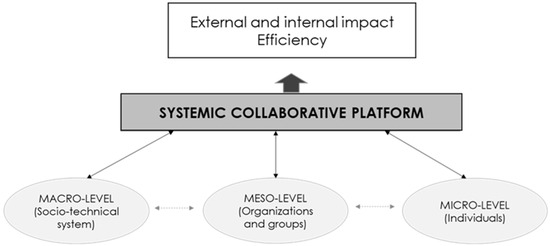Authors: Olga Kordas, Jaime Moreno-Serna, Teresa Sánchez-Chaparro , Wendy M. Purcell , Julio Lumbreras , Carlos Mataix, Leda Stott, Miguel Soberón and John D. Spengler
Published/Created by: MDPI
This article belongs to the Special Issue Co-design and Social Innovation for Climate Neutrality
Category: Sustainability
Link: https://doi.org/10.3390/su16219470
In the fields of partnership research and social innovation, there has been an increasing number of calls for evidence regarding the kind of collaborative multi-level governance structures that might support large-scale transformation processes, especially in regard to climate-neutral cities.
This paper conceptualizes a new type of intermediary actor, the Systemic Collaborative Platform (SCP). Using the example of a multi-stakeholder arrangement set up to design and implement Madrid’s Climate Neutrality Roadmap, the key features of an SCP include a focus on multi-stakeholder and cross-sectoral collaboration for public policy development, in this case operating at both a systemic level and a city scale, and a strong link to a key actor within this regime (a city council). Our study reveals how an SCP can contribute to articulation of a shared mandate among city actors and enhance the efficiency and effectiveness of a targeted transition by attracting, aligning and managing a wide and diverse organizational ecosystem through distributed facilitation, collaborative leadership, and continuous learning.

Keywords: climate urban neutrality; multi-stakeholder policy design; cross-sector partnerships; transition intermediary organizations; higher education institutions

